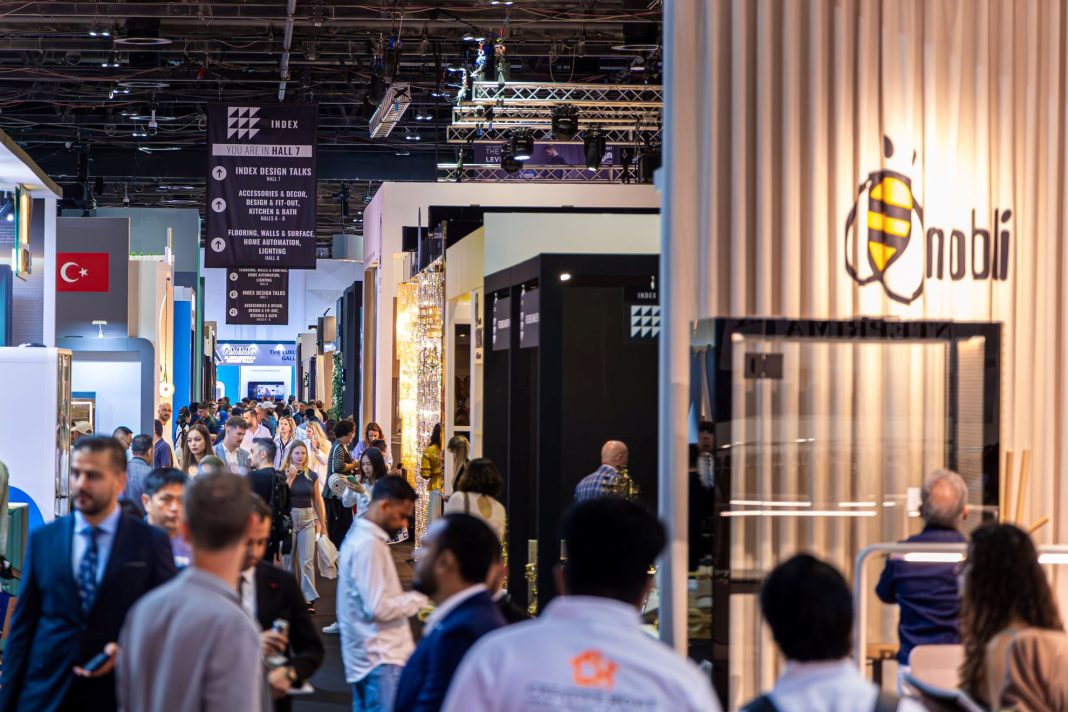The second day of this year’s INDEX, the Middle East’s leading event for interior designers, retailers, and fit-out contractors, saw visitors treated to a slew of engaging panel sessions as thousands of international industry professionals filled Dubai World Trade Centre seeking new business opportunities and insights into the latest topics and trends. The opening panel on the INDEX Design Talks stage looked at how entrepreneurism can give someone freedom, with the caveat that finding the right business partner is crucial to sustained success.
Elsewhere at today’s Workspace Summit, Pallavi Dean, the award-winning architect, sustainability specialist, and CEO of Roar, delivered a compelling keynote address, exploring the dynamic changes in the workspace industry and underscoring the increasing necessity of psychological expertise in organizational design. Dean explained psychology is foundational to effective design and critiqued the common business focus on return on investment, arguing such an approach often overlooks the crucial role of proximity. Congested workspaces can lead to environments similar to social housing, which foster vandalism and reduce productivity.
Experts also gathered to explore how technology is transforming the way we design and experience interior spaces, sharing their insights on the role of AI, automation, and data in the future of interior design. The panel discussion highlighted the potential of technology to streamline workflows, enhance creativity, and improve project delivery times. Middle East government policy and its pivotal role in the growth of tourism and hospitality sectors globally fell under the spotlight on the second day of The Hotel Show, the undisputed flagship event for the Middle East’s hospitality industry. Speaking during the opening session of the Hospitality Leadership and F&B Forum, Nadeem Zaman, Group Chief Strategy Officer at Rua Al Madinah Holding in Saudi Arabia, explained his company, which is PIF-owned, has a mandate to build 47,000 keys over the next 10 years. The Kingdom as a whole expects to add around a quarter of a million keys by 2030, while the objective is for international tourism to triple from around 26 million to 75 million within that same period








